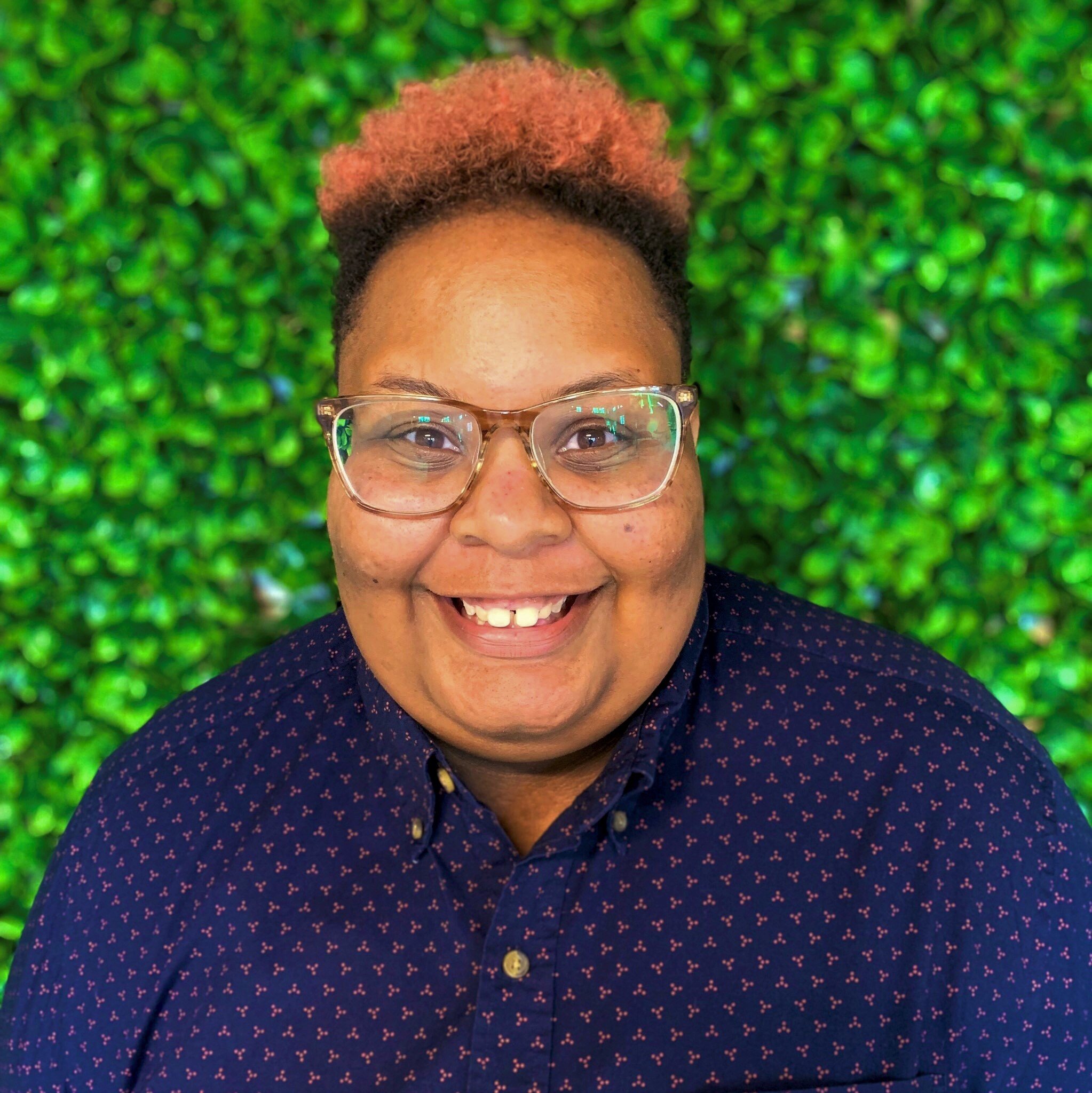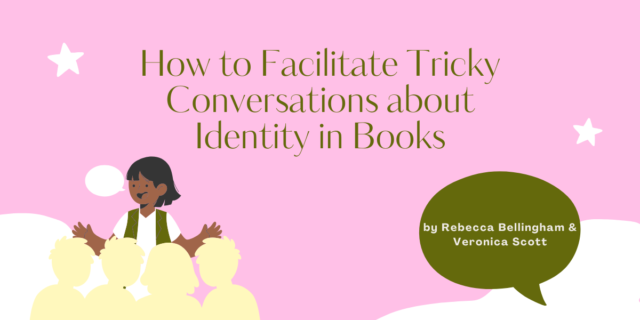
Closets, we learn at a young age, are for winter coats, monsters, and hiding our messiness in darkness. The darkest of spaces are not meant for identities, love, or truth. Closets are not meant for perfectly powdered faces, rainbow flags, pronouns, PrEp conversations, sequins, love letters, or brunch plans. They are not meant to hold our potential and brilliance, yet this world encourages many of us otherwise. Many LGBTQ+ educators and students exist in these closets at home, at school, and in their communities. Sometimes our closets just make us feel comfortable, but too often they are necessary in a world that refuses to validate or affirm our identities.
Closets, we learn at a young age, are for winter coats, monsters, and hiding our messiness in darkness. The darkest of spaces are not meant for identities, love, or truth. Closets are not meant for perfectly powdered faces, rainbow flags, pronouns, PrEp conversations, sequins, love letters, or brunch plans. They are not meant to hold our potential and brilliance, yet this world encourages many of us otherwise. Many LGBTQ+ educators and students exist in these closets at home, at school, and in their communities. Sometimes our closets just make us feel comfortable, but too often they are necessary in a world that refuses to validate or affirm our identities.
We leave our closets in hopes of freedom, and we are often greeted with the responsibility of making our schools more inclusive for students and teachers just like us.
The research is clear: LGBTQ+ students benefit from curriculum and classrooms that are safe, inclusive, and affirming of their sexual orientation and/or gender identity. Our most vulnerable students deserve to be seen, heard, and acknowledged in our schools. They deserve to have the nuance and intersectionality within their identities recognized and included in conversations. Even more so, we know that LGBTQ+ students benefit from having teachers with a shared identity—educators who also identify as LGBTQ+. The indicators are there. So, it is quite easy for our larger educational community, especially on days like National Coming Out Day, to place the onus of inclusion and support of LGBTQ+ students on people like me—LGBTQ+ educators.
I get it. Our plates are full. Each day, we grapple with disrupting and reimagining transformative schools for our students while often dealing with a myriad of other issues—accountability measures, a lack of resources, and never-ending to-do lists. Our lives as teachers have taught us that prioritization and delegation are necessary for survival and sustainability. However, too often we depend on the presence and labor of staff from underrepresented populations to solve our problems. Underneath our championing of diversity in our field is also an assumption that educators from underrepresented populations will solve the problem.
Today we celebrate National Coming Out Day. Members of our communities choose to bust down their closet doors and disclose their sexual orientation or gender identity to friends, families, and strangers. It is a day confettied with courageous vulnerability and pride, but it’s also a day of brokenness, darkness, and silence in our community. Sometimes the world isn’t ready to receive our light. Sometimes it is necessary to keep our light within us as LGBTQ+ folx. The freedom associated with “coming out of the closet” is sometimes met with a world not ready to receive us or, even more troubling, with the immediate responsibility and burden of making this space more inclusive for people like us.
Famed novelist Toni Morrison once said, “If you are free, you need to free somebody else.” As an out queer educator, this sentiment guides my work every single day. Every decision I make is rooted in freedom and liberation; I work to create more space for folx who look and identify like me. As a black queer person, I choose to do this work. However, we cannot depend on LGBTQ+ educators to create the space that they (and their students) deserve and need in our schools. Furthermore, our work to make our schools more inclusive must not be predicated on the visibility of LGBTQ+ students and staff. The presence of LGBTQ+ characters in books, inclusive language, and affirmation of identity should not depend on our perception of our LGBTQ+ student/teacher population. On this National Coming Out Day, I want to charge us with rethinking “ownership” in the work to make our schools more inclusive.
We can’t all be out. Reports and suggestions that LGBTQ+ youth need out LGBTQ+ educators often overlook the nuance and intersectionality of our experiences. Just this week, the Supreme Court began to hear arguments on workplace protections for LGBTQ+ people. For various reasons, many of us choose not to be out. In many schools, educators remain in the closet to ensure they can remain in the classroom, particularly in states without protections for LGBTQ+ people. Others choose to keep their personal and professional lives separate (like many who don’t identify as LGBTQ+). In 1978, San Francisco politician Harvey Milk said:
Gay brothers and sisters, you must come out. Come out to your parents. I know that it is hard and will hurt them, but think about how they will hurt you in the voting booth! Come out to your relatives. Come out to your friends, if indeed they are your friends. Come out to your neighbors, to your fellow workers, to the people who work where you eat and shop. Come out only to the people you know, and who know you, not to anyone else. But once and for all, break down the myths. Destroy the lies and distortions. For your sake. For their sake.
Harvey Milk is a legend, but even he missed the mark. Sure—the hope is that our pride will evoke raging allyship among our colleagues, friends, and family, but coming out is a lifelong process that should never need to center the needs of others, particularly allies.
We must no longer depend on the outness of LGBTQ+ educators to make our schools more inclusive for LGBTQ+ students. We must no longer depend on the outness of LGBTQ+ educators and students to determine the need for inclusion in our learning spaces.
As a community, we are all responsible for inclusion and making our LGBTQ+ students feel seen, heard, and affirmed (regardless of their visibility). As LGBTQ+ educators, our worth in this work should no longer depend on our outness. And our community must stop demanding our visibility as a means to support LGBTQ+ students.
Sometimes our closets just make us comfortable and sometimes they are necessary. Sometimes the world is not ready for our light.
Not all of us can be out and not all of us are. Love us anyway.
Not all of us can be out and not all of us are. Make your classrooms, curriculums, and professional development more inclusive of our identities anyway.
On this National Coming Out Day, I celebrate the beauty, brilliance, and resilience in our community. I acknowledge our worth and work regardless of our “outness.” To my LGBTQ+ family, I see you even if your identity is not visible and I will continue to work to make space for all of us.
I charge our allies to do the same.
◊ ◊ ◊ ◊ ◊ ◊ ◊ ◊ ◊
If you are looking for more resources on supporting LGBTQ+ educators and students, consider the list below.
- LGBTQ Educators: What We Know and What They Need (GLSEN)
- “Beyond the Letters” podcast series with Kate and Maggie Roberts (Heinemann)
- Best Practices: Creating an LGBT-inclusive School Culture (Teaching Tolerance)
- “Respect for All Project” (GroundSpark)

shea martin is a lit teacher, consultant, and researcher whose work is rooted in antiracist pedagogy, intersectional feminism, and creating liberatory learning structures for BIPOC students. shea’s research examines the current educational landscape of America’s southern cities with a particular focus on how gender and race inform successful BIPOC student-teacher relationships in underresourced communities. A native of the D.C metro region, they began their teaching career in Florida and recently relocated to Massachusetts to pursue graduate studies. Outside of their work in education, shea is known for making the dopest mixtapes and never bailing on a brunch date. Find them on Twitter at @sheathescholar


